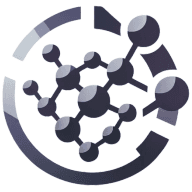The Role of AI in Nanomedicine: 6 Future Applications
Nanomedicine is on the brink of a revolutionary transformation, with artificial intelligence as its driving force. From targeting cancer cells with precision to deploying microscopic robots for drug delivery, AI is pushing the boundaries of what's possible in healthcare. These groundbreaking advancements promise to usher in a new era of personalized treatments, early disease detection, and enhanced diagnostic imaging.
- AI-Guided Nanoparticles Target Cancer Cells
- Nanorobots Revolutionize Precision Drug Delivery
- AI Nanosensors Enable Early Disease Detection
- AI Optimizes Nanomaterials for Tissue Engineering
- Nanoparticle AI Systems Personalize Medical Treatments
- AI Nanodevices Transform Diagnostic Imaging
AI-Guided Nanoparticles Target Cancer Cells
AI and nanomedicine are converging most powerfully in precision targeting - something we've been refining in radiation therapy for years. The ability to deliver treatment exactly where it's needed while sparing healthy tissue has always been our holy grail, and this convergence could revolutionize that precision at the cellular level.
A specific example I'm particularly excited about is AI-guided nanoparticles for targeted cancer treatment. Imagine nanoparticles programmed with AI algorithms that can navigate through the bloodstream, identify specific cancer cell markers, and deliver radioactive isotopes or chemotherapy drugs directly to tumor sites. The AI component would continuously learn from real-time imaging and biomarker data to optimize the targeting and dosing in ways that static programming never could.
What makes this especially promising from my clinical perspective is that AI could enable these nanomedicines to adapt their behavior based on how individual patients respond to treatment. In radiotherapy, we already use imaging and treatment planning software that's becoming increasingly sophisticated - I can envision AI-powered nanoparticles that communicate with external monitoring systems to adjust their therapeutic payload in real-time based on tumor response and patient physiology.
The patient care implications are tremendous. We could potentially achieve the kind of personalized, adaptive treatment that we've always wanted but couldn't deliver with current technology. However, the integration challenges will be significant - we'll need robust clinical testing protocols and new safety frameworks that can keep pace with these rapidly evolving technologies.

Nanorobots Revolutionize Precision Drug Delivery
AI-powered nanorobots are set to revolutionize drug delivery in the field of medicine. These tiny machines can be programmed to navigate through the human body and deliver medications directly to specific cells or tissues. By using artificial intelligence, these nanorobots can adapt to changes in the body and make real-time decisions about when and where to release drugs.
This targeted approach could greatly reduce side effects and increase the effectiveness of treatments for various diseases. The potential impact on cancer treatment, in particular, is enormous, as nanorobots could deliver chemotherapy drugs directly to tumors while sparing healthy cells. Everyone should stay informed about these exciting developments in AI-powered nanorobotics for healthcare.
AI Nanosensors Enable Early Disease Detection
Nanosensors enhanced by AI are poised to transform early disease detection. These microscopic devices can be designed to detect specific biomarkers or changes in the body at a molecular level. When combined with artificial intelligence, these sensors can analyze complex data patterns and identify signs of disease long before symptoms appear.
This technology could lead to a new era of preventive medicine, where diseases are caught and treated at their earliest stages. The implications for improving survival rates and quality of life for patients with conditions like cancer, heart disease, and neurological disorders are significant. It's crucial for everyone to support research and development in this field to make early disease detection a reality for all.
AI Optimizes Nanomaterials for Tissue Engineering
AI-optimized nanomaterials are advancing the field of tissue engineering in remarkable ways. By using artificial intelligence to design and fine-tune the properties of materials at the nanoscale, scientists can create scaffolds that better mimic natural tissues. These advanced materials can support cell growth, promote tissue regeneration, and even adapt to the changing needs of the body over time.
The potential applications range from healing severe burns to repairing damaged organs or even growing new ones. This technology could dramatically reduce the need for organ transplants and improve outcomes for patients with a wide range of injuries and diseases. It's important to advocate for continued funding and research in this promising area of nanomedicine.
Nanoparticle AI Systems Personalize Medical Treatments
Nanoparticle-based AI systems are opening new doors for personalized medical treatments. These tiny particles can be designed to carry both therapeutic agents and miniature computers capable of running AI algorithms. As they circulate through the body, they can gather data about an individual's unique physiology and disease state. The AI then processes this information to tailor the treatment in real-time, adjusting dosages or targeting specific areas as needed.
This level of personalization could greatly improve treatment efficacy while minimizing side effects. The potential to revolutionize treatments for chronic diseases, autoimmune disorders, and even mental health conditions is enormous. Everyone should encourage their healthcare providers to stay updated on these advancements in nanoparticle-based personalized medicine.
AI Nanodevices Transform Diagnostic Imaging
AI-driven nanodevices are set to transform diagnostic imaging in healthcare. These microscopic machines can be designed to travel through the body and capture high-resolution images at the cellular level. By using artificial intelligence to process and interpret these images in real-time, doctors can gain unprecedented insights into a patient's health.
This technology could enable earlier and more accurate diagnoses of diseases like cancer, cardiovascular conditions, and neurological disorders. Moreover, these nanodevices could potentially perform minor interventions during the imaging process, combining diagnosis and treatment in a single procedure. It's essential for patients to ask their doctors about the latest developments in AI-powered diagnostic imaging and how it might benefit their health.

